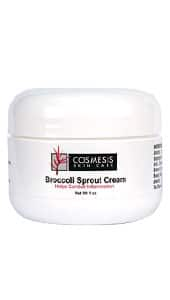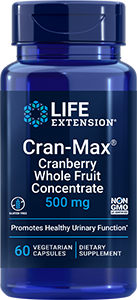Body mass index may be better predictor of cardiovascular disease than serum cholesterol
Friday, December 14, 2012. A research letter published in the December 10, 2012 issue of the American Medical Association journal Archives of Internal Medicine suggests that body mass index (BMI) could be a better predictor of the development of cardiovascular disease than serum cholesterol levels. Body mass index is calculated by dividing weight in kilograms by height in meters squared. Although it is not an infallible indicator of an individual's healthy or unhealthy body weight, BMI can be useful in studies examining large numbers of people, such as the current study.
David Faeh, MD, MPH and his associates at the University of Zurich in Switzerland analyzed data from 17,791 men and women who participated in a community health promotion initiative known as the National Research Program 1A, or the Swiss Monitoring of Trends and Determinants in Cardiovascular Disease population survey, a project of the World Health Organization. Over up to 31.2 years of follow-up, 2,170 men and 1,761 women died, among whom 749 and 630 deaths were attributable to cardiovascular disease.
Dr Faeh and colleagues calculated ten year risk models of fatal cardiovascular disease using total serum cholesterol or body mass index values. They found that the BMI model could better discriminate between persons at low and high cardiovascular disease risk and that the synergistic effects of smoking and blood pressure were stronger when combined with BMI than in combination with cholesterol values. While the results of the study are not to be interpreted as a negation of the relative importance of cholesterol levels in the development of heart disease, the authors remark that traditional cardiovascular disease predictive models such as the Framingham Risk Score fail to take BMI into account. "The fact that BMI renders blood sampling unnecessary leads to a substantial increase of population-based samples available for cardiovascular disease risk estimation," they write. "Compared with dyslipidemia screening, screening for obesity has a stronger scientific foundation and is unconditionally recommended. Furthermore, lifestyle changes (diet and physical activity) promoting weight loss or preventing weight gain may improve health more strongly than lipid-lowering treatment."
"Our results suggest that BMI may be a valuable alternative to cholesterol in cardiovascular disease risk prediction models," they conclude. |
 |
|
Researchers from the University of Connecticut report improvements in several cardiovascular risk factors in conjunction with supplementation with powdered grapes by men with metabolic syndrome, a cluster of factors associated with an elevated risk of diabetes and heart disease. The findings were reported in an article published online on July 18, 2012 in the Journal of Nutrition.
Dr Maria Luz Fernandez and her colleagues randomized 24 men aged 30 to 70 to receive a placebo or freeze dried grape polyphenol powder for 30 days, followed by a three week period of no treatment. Participants then underwent another 30 days during which their previous treatments were switched. Blood pressure, brachial artery flow-mediated vasodilation (an assessment of endothelial function), plasma soluble intercellular adhesion molecule-1 and soluble vascular cell adhesion molecule-1 (which have been associated with the development of coronary heart disease), and other factors were measured before and after each treatment period.
Supplementation with powdered grape resulted in a decrease in systolic blood pressure and plasma soluble intercellular adhesion molecule-1, in addition to improved endothelial function. The authors conclude that grapes "may potentiate vasorelaxation and reduce blood pressure and circulating cell adhesion molecules, resulting in improvements in vascular function."
The study is the first, to the researchers knowledge, to examine the effect of grape intake on the metabolic syndrome. "These results suggest that consuming grapes can improve important risk factors associated with heart disease, in a population that is already at higher risk," stated Dr Fernandez, who is affiliated with the University of Connecticut's Department of Nutritional Sciences. "This further supports the accumulating evidence that grapes can positively influence heart health, and extends it to men with metabolic syndrome." |
|

|
 |
|
Scientists have found that topically applied sulforaphane has the ability to help protect the skin against the visible signs of sun damage. Sulforaphane promotes the production of certain enzymes—such as glutathione S-transferase—that help support the skin's natural ability to fortify itself against the visible damage caused by sun radiation.
Broccoli contains glucoraphanin, which is enzymatically converted into sulforaphane. Three-day-old broccoli sprouts are packed with up to 100 times more glucoraphanin by weight than mature broccoli plants! The extracts from glucoraphanin-rich broccoli sprouts—found in Cosmesis Broccoli Sprout Cream— offer maximum support against the visible effects of ultraviolet (UV) rays. In addition to glucoraphanin, several potent antioxidants are included such as aspalathin from rooibos tea and epigallocatechin-3-gallate from green tea to help reduce visible effects of UV radiation and oxidative stress. |
|
 |
|
The anatomy of the female urinary tract differs greatly from men, resulting in the need for additional nutritional support for women. A wealth of published studies indicates that cranberry polyphenols may help to support a healthy urinary tract.
Cranberries have been known for decades to promote a healthy urinary tract. Clinical research demonstrates that cranberries' proanthocyanidins are powerful antioxidants that can reduce oxidative stress. A double-blind comparison study confirms that Cran-Max® helps support a healthy urinary tract. Each Life Extension Cran-Max® capsule contains 500 mg of cranberry concentrate to promote urinary tract health. Each Cran-Max® capsule also contains:
- The synergistic, complete spectrum activity of the entire cranberry whole fruit
- A unique delivery system that protects its cranberry constituents from degradation
- Antioxidants
|
|
|

Bio-Curcumin® and BCM-95® are registered trademarks of Dolcas-Biotech, LLC. U.S. Patents Nos. 7,883,728, 7,736,679 and 7,879,373. Cran-Max® is a registered trademark of BDM Biotechnologies, LLC.
|



